Hello Hive
A beautiful new morning to everyone, I hope that we had a sound night rest and are refreshed to face the activities of a new day.
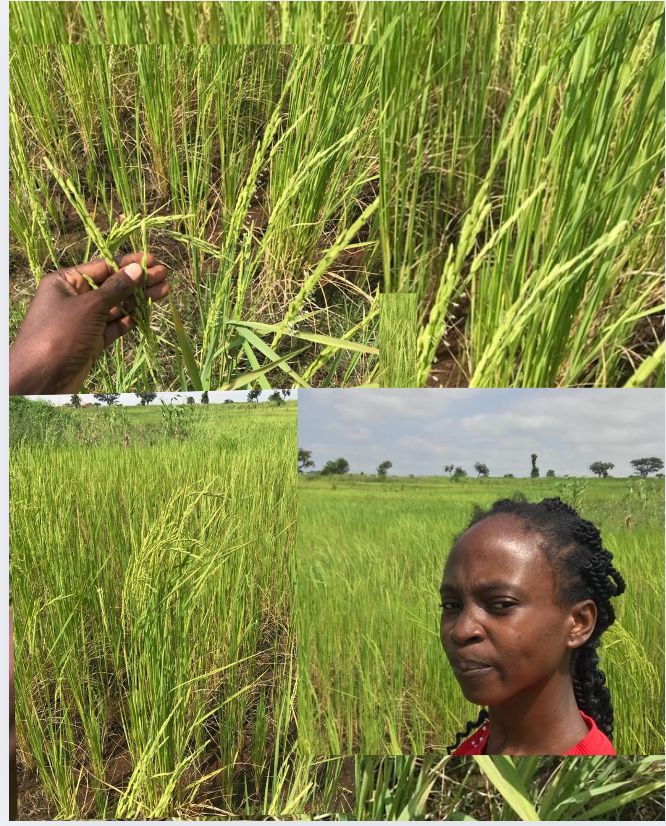
Eventually I feel a little relieved when I arrived at our long grain rice farm to realize that it has equally start producing seeds as as well
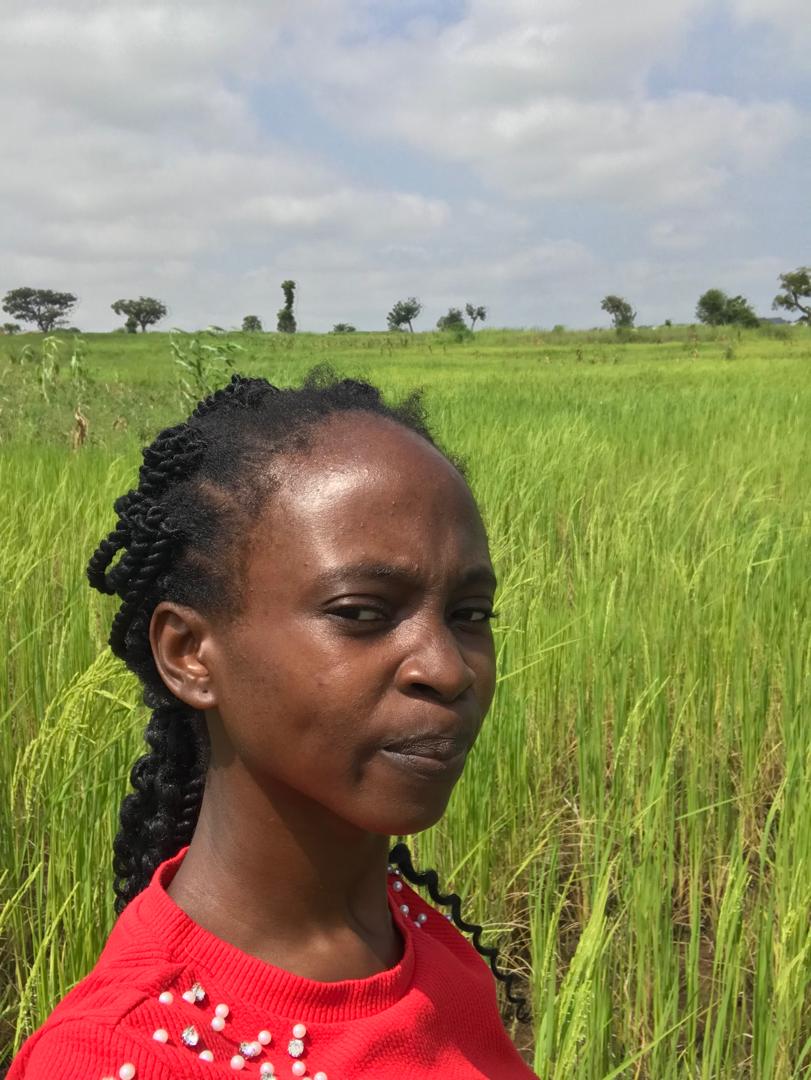
The rice plant is as tall as I am and some year they often meet up to my height, the very same way the rice grains are tall, that is how the seeds they produce gets long as well, this is the reason why they are called long grain rice.
I have friends that do not enjoy eating the short grain rice and only prefer eating the long grain type. I have grown and eating both types of rice and even their taste after cooking feels different from the short grain rice.
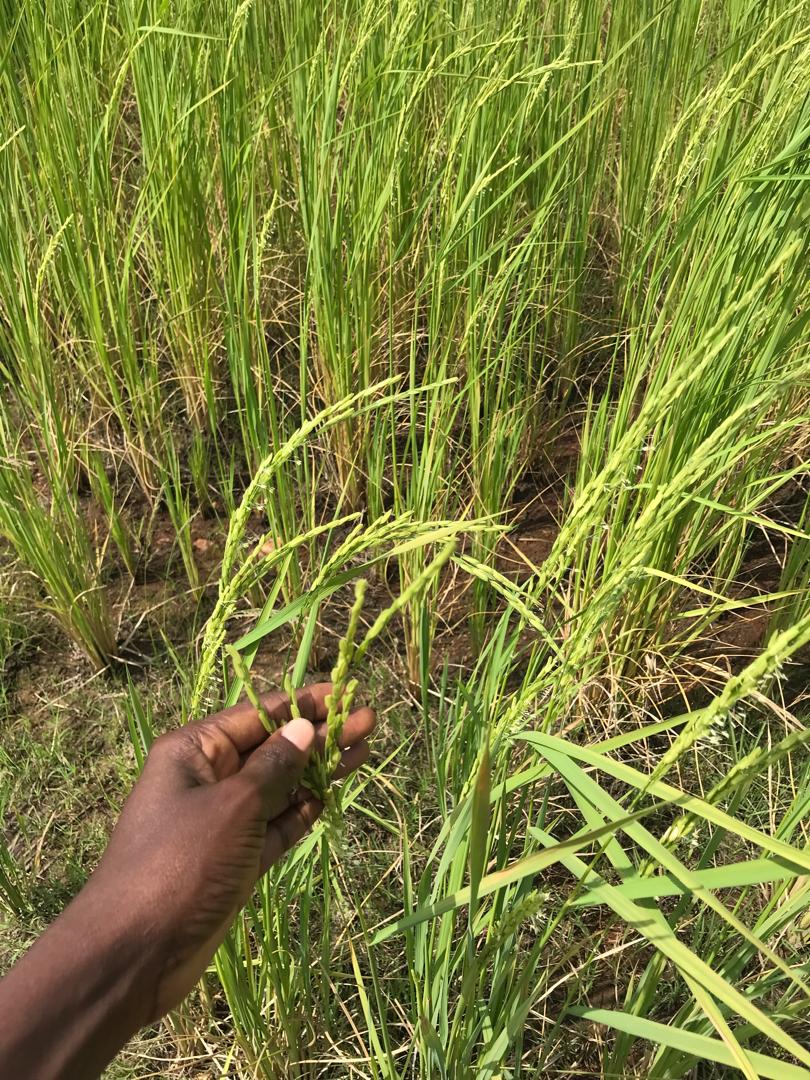
This rice has been a source of concern for us this year in that it has been delaying in producing seeds and now that the ground is already getting dry it is even more worrying. The rains have stopped falling even though I am hoping that we would have at least one more downpour before the rains finally stops
Once the rains stops like this, the ground begins to dry up almost immediately and any crop that is yet to produce seeds at this time will have a slim chance of producing any food this year.
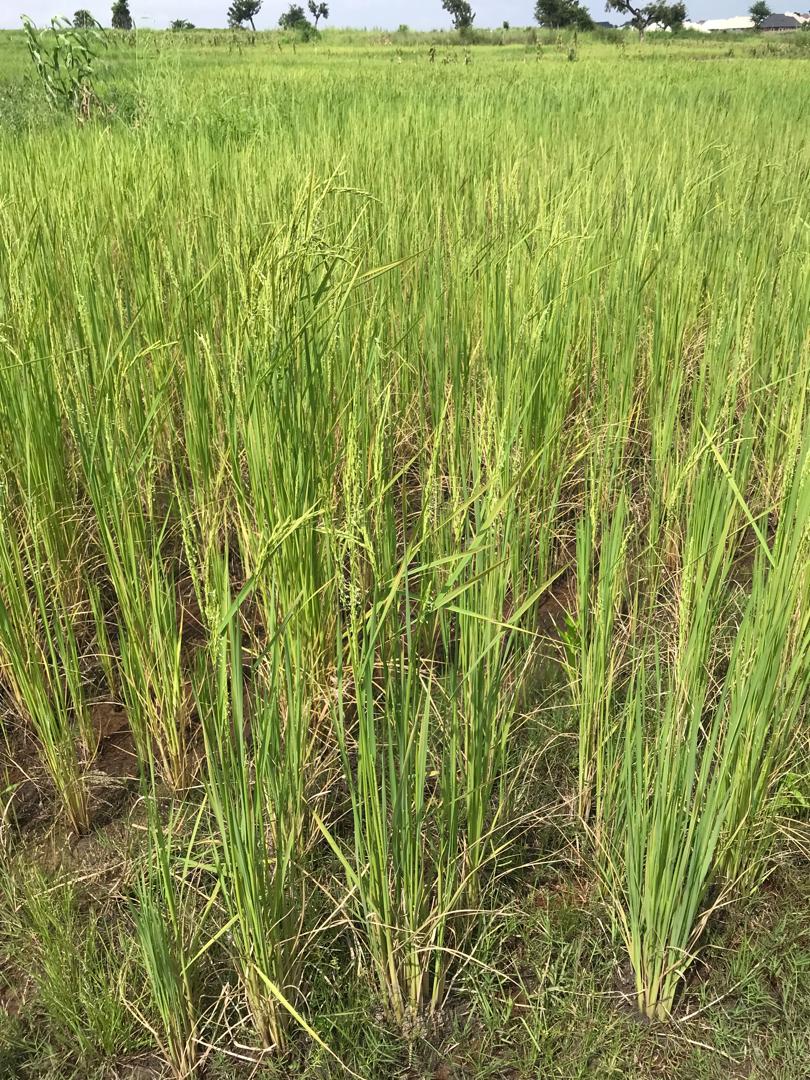
Now take a look at this ground you will see that the ground is almost dried already and all the swamp water that would have assisted with the growth of this crop has dried up. This was the reason for the concern we were having for the rice.
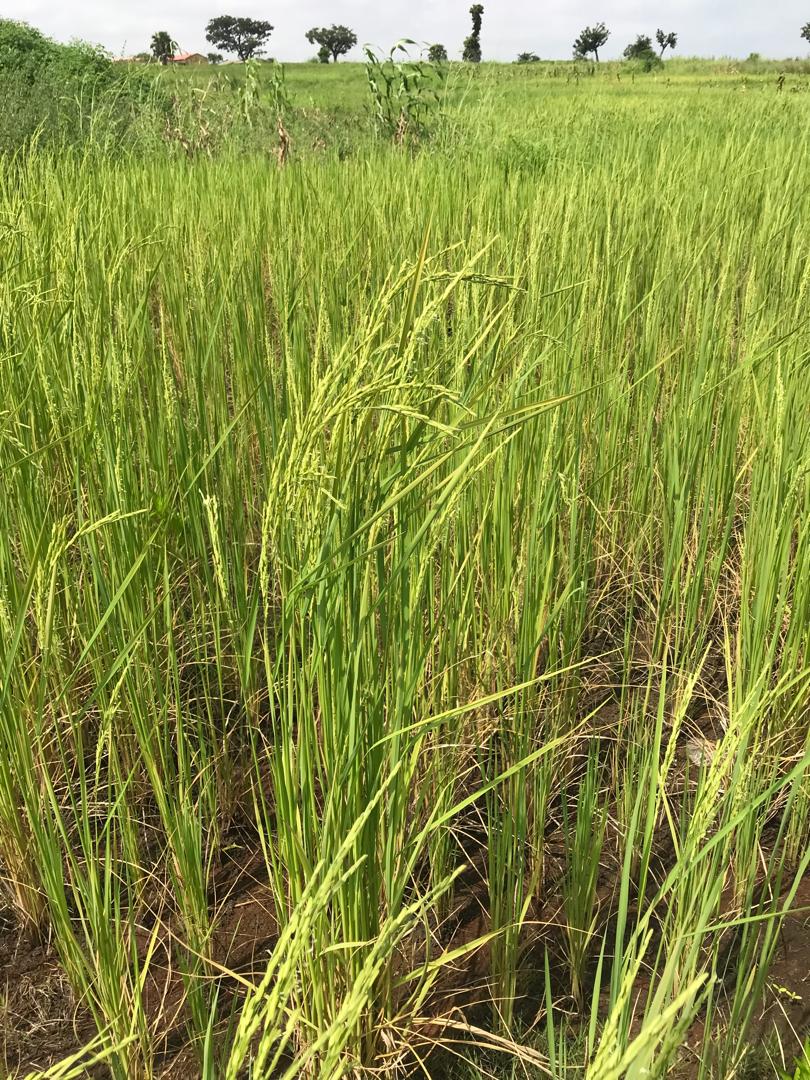
The plant has experienced some sort of delay in growing this year and for some reasons we couldn't just point out the reason for the delay.. Once rice is able to produce seeds pods like this even if it is some moisture from early morning dew it will still be able to produce some food. Having seen this progress I took out time to clear off every remaining bushes around and within the rice grains which my affect its progress. Bushes around any farm causes rodents to hideout here and cut off plants from their roots.
We do everything we can to protect grains from rodents and birds that would otherwise not just feed on plants but damage them to reduce yield.